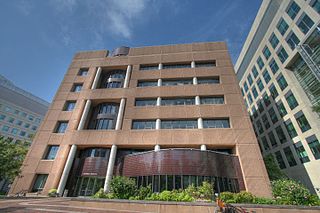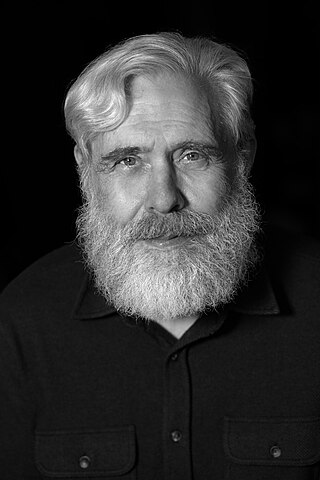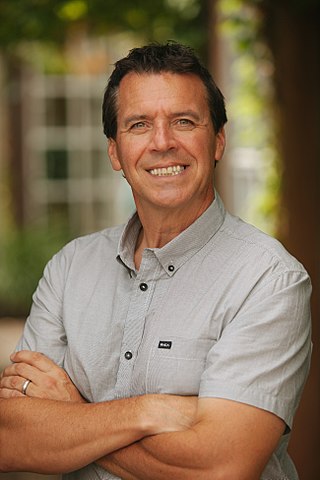
Leroy "Lee" Edward Hood is an American biologist who has served on the faculties at the California Institute of Technology (Caltech) and the University of Washington. Hood has developed ground-breaking scientific instruments which made possible major advances in the biological sciences and the medical sciences. These include the first gas phase protein sequencer (1982), for determining the sequence of amino acids in a given protein; a DNA synthesizer (1983), to synthesize short sections of DNA; a peptide synthesizer (1984), to combine amino acids into longer peptides and short proteins; the first automated DNA sequencer (1986), to identify the order of nucleotides in DNA; ink-jet oligonucleotide technology for synthesizing DNA and nanostring technology for analyzing single molecules of DNA and RNA.

Whitehead Institute for Biomedical Research is a non-profit research institute located in Cambridge, Massachusetts, United States that is dedicated to improving human health through basic biomedical research. It was founded as a fiscally independent entity from the Massachusetts Institute of Technology (MIT), where its 19 members all hold faculty appointments in the MIT Department of Biology or the MIT Department of Bioengineering. As of 2023, Ruth Lehmann is its director; she succeeded David C. Page.
Sanofi S.A. is a French multinational pharmaceutical and healthcare company headquartered in Paris, France. The corporation was established in 1973 and merged with Synthélabo in 1999 to form Sanofi-Synthélabo. In 2004, Sanofi-Synthélabo merged with Aventis and renamed to Sanofi-Aventis, which were each the product of several previous mergers. It changed its name back to Sanofi in May 2011. The company is a component of the Euro Stoxx 50 stock market index. In 2023, the company’s seat in Forbes Global 2000 was 89.

Genome Valley is an Indian high-technology business district spread across 2,000-acre (8.1 km2)/(3.1 sq mi) in Hyderabad, India. It is located across the suburbs, Turakapally, Shamirpet, Medchal, Uppal, Patancheru, Jeedimetla, Gachibowli and Keesara. The Genome Valley has developed as a cluster for Biomedical research, training and manufacturing. Genome Valley is now into its Phase III, which is about 11 kms from the Phase I and II with the total area approximately 2,000-acre (8.1 km2).

George McDonald Church is an American geneticist, molecular engineer, chemist, serial entrepreneur, and pioneer in personal genomics and synthetic biology. He is the Robert Winthrop Professor of Genetics at Harvard Medical School, Professor of Health Sciences and Technology at Harvard University and Massachusetts Institute of Technology, and a founding member of the Wyss Institute for Biologically Inspired Engineering at Harvard University.
Aled Morgan Edwards is the founder and Chief Executive of the Structural Genomics Consortium, a charitable public-private partnership. He is Professor of Medical Genetics and Medical Biophysics at the University of Toronto, Visiting Professor of Chemical Biology at the University of Oxford, and adjunct professor at McGill University.

Matthias Mann is a German physicist and biochemist. He is doing research in the area of mass spectrometry and proteomics.
Christoph Westphal is an American biomedical businessman.

Stephen James Lippard is the Arthur Amos Noyes Emeritus Professor of Chemistry at the Massachusetts Institute of Technology. He is considered one of the founders of bioinorganic chemistry, studying the interactions of nonliving substances such as metals with biological systems. He is also considered a founder of metalloneurochemistry, the study of metal ions and their effects in the brain and nervous system. He has done pioneering work in understanding protein structure and synthesis, the enzymatic functions of methane monooxygenase (MMO), and the mechanisms of cisplatin anticancer drugs. His work has applications for the treatment of cancer, for bioremediation of the environment, and for the development of synthetic methanol-based fuels.
Willem P. C. "Pim" Stemmer was a Dutch scientist and entrepreneur who invented numerous biotechnologies. He was the founder and CEO of Amunix Inc., a company that creates "pharmaceutical proteins with extended dosing frequency". His other prominent inventions include DNA shuffling, now referred to as molecular breeding. He holds more than 97 patents. Stemmer was honored with the Charles Stark Draper Prize in 2011 for the pioneering contributions to directed evolution which won the Nobel Prize in Chemistry in 2018. He was elected as member of National Academy of Engineering.

Evotec SE is a publicly listed drug discovery and development company headquartered in Hamburg, Germany. The company operates globally, largely through external alliances with pharmaceutical and biotechnology companies, academic institutions, patient advocacy groups, and venture capitalists. As of 31 December 2021 Evotec had a market capitalization of €7.5 billion and a pipeline of more than 130 partnered programs in discovery, pre-clinical development and clinical development.

Laurence Harris Pearl FRS FMedSci is a British biochemist and structural biologist who is currently Professor of Structural Biology in the Genome Damage and Stability Centre and was Head of the School of Life Sciences at the University of Sussex.

Photoactivated peptides are modified natural or synthetic peptides whose functions can be activated or controlled using light. These peptides incorporate light-sensitive elements that allow for precise regulation their biological activity in both space and time. The activation can be either irreversible, as in the case of caged peptides with photocleavable protecting groups, or reversible, utilizing molecular photoswitches like azobenzenes or diarylethenes, and diarylethenes By incorporating these light-responsive components into the peptide structure, peptide properties, functions, and biological activities can be manipulated with high precision. This approach enables targeted activation of peptides in specific areas, making photoactivated peptides valuable tools for applications in cancer therapy, drug delivery, and probing molecular interactions in living cells and in organisms.

A stapled peptide is a modified peptide, typically in an alpha-helical conformation, that is constrained by a synthetic brace ("staple"). The staple is formed by a covalent linkage between two amino acid side-chains, forming a peptide macrocycle. Staples, generally speaking, refer to a covalent linkage of two previously independent entities. Peptides with multiple, tandem staples are sometimes referred to as stitched peptides. Among other applications, peptide stapling is notably used to enhance the pharmacologic performance of peptides.

Kevin Donald Lustig is an American scientist and entrepreneur and founder of three life science companies: the pharmaceutical company Kalypsys in 2001; the online research marketplace Scientist.com in 2007; and the non-profit lab incubator Bio, Tech and Beyond in 2013.

Intellia Therapeutics, Inc. is an American clinical-stage biotechnology company focused on developing novel, potentially curative therapeutics leveraging CRISPR-based technologies. The company's in vivo programs use intravenously administered CRISPR as the therapy, in which the company's proprietary delivery technology enables highly precise editing of disease-causing genes directly within specific target tissues. Intellia's ex vivo programs use CRISPR to create the therapy by using engineered human cells to treat cancer and autoimmune diseases.

Orlando David Schärer is a Swiss chemist and biologist researching DNA repair, genomic integrity, and cancer biology. Schärer has taught biology, chemistry and pharmacology at various university levels on three continents. He is a distinguished professor at the Ulsan National Institute of Science and Technology (UNIST) and an associate director of the IBS Center for Genomic Integrity located in Ulsan, South Korea. He leads the three interdisciplinary research teams in the Chemical & Cancer Biology Branch of the center and specifically heads the Cancer Therapeutics Mechanisms Section.
The Exploratory Science Center (ESC) is a pharmaceutical company based in Cambridge, MA. The disease agnostic research site was founded in 2016, and was led by Daria Hazuda until 2021. In late 2021 Juan Alvarez took on leadership as the interim head and Marc Levesque took on leadership in 2022. The Exploratory Science Center is a subsidiary of Merck & Co.
Angela N. Koehler is an American biochemist who is the Karl Van Tassel (1925) Career Development Professor of Chemical Biology at the Broad Institute. Her research considers the development of chemical tools to understand transcriptional regulation, and the design of next-generation pharmaceuticals.
Olalla Vázquez Spanish, holds a degree in organic chemistry and is located at the University of Marburg, Germany. She is a Professor of Chemical Biology in the Chemistry Department.













